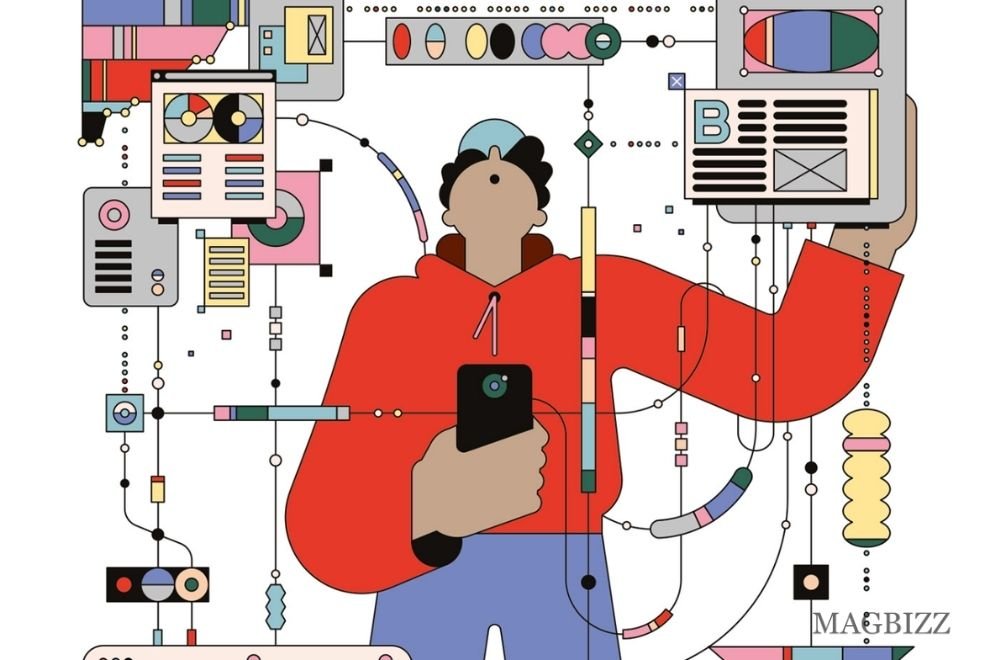Explore the ever-changing field of IT occupations that are positioned to have a significant impact on the future in this extensive blog. Discover new career paths, in-demand skills, and exciting prospects in a range of IT fields. Acquire the skills for success in the future tech careers. Thrive in the fast-paced world of the evolving tech sector.
The world of technology is always changing, influencing how we work and live. The need for qualified workers in the tech sector is only growing as the twenty-first century goes on. Tech’s rapid growth creates various job opportunities, demanding an adaptable skill set. Discover future Tech Careers, skills for success, and promising job prospects in this blog.
Future Job Opportunities in Tech
Tech advancements drive job growth, particularly in ICT, offering many exciting career opportunities:
- AI Ethics Analyst
The demand for experts with a focus on ethical issues related to AI applications is rising as AI becomes more commonplace. AI ethics analysts ensure ethical AI creation and use, shaping Future Tech Careers by addressing prejudice and responsibility.
- Chief Trust Officer
Organizations are assigning Chief Trust Officers to supervise data governance, compliance, and trustworthiness as a result of growing concerns about data privacy. They execute plans ensuring security, privacy, and data integrity, shaping the evolving job landscape.
- Genomic Information Scientist
Positions centered on the analysis and interpretation of genetic data have emerged as a result of developments in personalized medicine and genomics. To create individualized healthcare plans and therapies, genomic information scientists strive to comprehend genetic data, paving the way for future job opportunities.
- Space Tourism Specialist
Professionals with expertise in space tourism are finding possibilities as the commercial space sector grows. Space travel advisors, aerospace engineers for commercial flights, and space tourism designers signify future job prospects.
- Climate Change Technology Analyst
Professionals creating tech solutions for environmental issues are increasingly sought after amid rising focus on sustainability and addressing climate change.These positions use tech to monitor climate, develop renewable energy, and cut environmental impact, emphasizing the need for High-Demand Tech Skills.
- Algorithm Bias Auditor
Algorithm bias auditors make sure that algorithms employed in diverse applications are free from biases that might support discrimination or inequality since algorithms are becoming more and more important in decision-making processes, emphasizing the necessity for High Demand Tech Skills.
- Digital Twin Designer
Virtual copies of real-world systems or procedures are produced via digital twin technology. These copies are created and maintained by digital twin designers, who open up new possibilities for predictive maintenance, optimizations, and simulations in a variety of sectors, including manufacturing, healthcare, and infrastructure, indicating future job opportunities.
High-Demand Tech Skills for Future Careers
A few competencies will always be necessary for individuals hoping to succeed in the ever-changing IT industry. The following are some highly sought-after tech abilities in a variety of domains, showcasing the need for High Demand Tech Skills:
- Artificial Intelligence (AI) and Machine Learning (ML)
It’s crucial to grasp the foundations of AI and ML, such as deep learning, neural networks, and natural language processing. It is quite beneficial to know programming languages like Python, R, and frameworks like TensorFlow or PyTorch, highlighting the importance of High Demand Tech Skills.
- Cybersecurity
It is imperative to possess expertise in threat intelligence, vulnerability assessment, ethical hacking, and security operations. It’s in great demand to know security protocols, encryption methods, and familiarity with security technologies such as SIEM (Security Information and Event Management), reflecting the importance of keeping up with Technology job trends.
- Data Science and Analytics
It is essential to have proficiency in statistical analysis, data wrangling, and data visualization software like Tableau or Power BI. Proficiency in programming languages like Python, R, and SQL, as well as knowledge of big data technologies like Spark and Hadoop, are highly valued, showcasing the significance of staying updated with Technology job trends.
- Cloud Computing
It is necessary to possess proficiency with cloud systems such as AWS (Amazon Web Services), Azure, or Google Cloud. Proficiency in cloud design, cloud deployment, and cloud-based application administration is highly sought, emphasizing the importance of acquiring High Demand Tech Skills.
- Internet of Things (IoT)
It is essential to comprehend IoT devices, protocols, and designs. Competence in edge computing and sensor technologies, as well as programming languages like Python and C/C++, are desirable, highlighting the importance of acquiring High Demand Tech Skills.
The growing Technology job trends
- Remote Work and Distributed Teams
The COVID-19 epidemic hastened the shift to remote employment, revolutionizing the operations of technological organizations. A lot of IT jobs changed to remote or hybrid work arrangements, which let employees work from any location in the world. It is anticipated that the trend toward remote work will continue, providing flexibility and creating career chances for skilled people all around the world, reflecting Technology job trends.
- Hybrid and Multi-Skilled Roles
Technology workers now need to have a broad range of technical abilities from several disciplines since employment positions are becoming more and more hybrid and multidimensional. Businesses are looking for people who can work across divisions, such as data scientists with commercial savvy or coders with marketing experience. The significance of varied skill sets and cross-functional collaboration is emphasized by this trend, signaling future job opportunities.
- The Need for Cybersecurity Experts
The need for cybersecurity specialists has increased across all industries due to the surge in cyber threats and data breaches. Organizations that place a high priority on protecting their digital assets are always in need of qualified cybersecurity specialists who are adept at threat identification, risk assessment, and putting strong security measures in place, reflecting Technology job trends.
- Automation and AI-Powered Roles
As automation and artificial intelligence (AI) continue to transform the workforce, new occupations that take advantage of these developments are being created. The need for workers with experience in robotic process automation (RPA), AI-driven solutions, and automated system implementation and management is growing. Experts in incorporating AI tools into current workflows are in great demand, indicating future job opportunities.
The IT industry is always changing, but there are plenty of opportunities for flexible people with the necessary abilities to thrive. Future technology occupations will cover a wide range of roles that correspond with both social demands and new developments in technology, reflecting ongoing Technology job trends. The growth of AI is driving a need for Chief Trust Officers and AI ethics experts, highlighting the need for data governance and ethical deployment.
The way that technology is incorporated into healthcare, space exploration, and climate change creates jobs that address global issues, such as climate change technology analysts and genomic information scientists, paving the way for Tech Careers of the Future. The continued growth of IT jobs is shown by remote work, multifaceted roles, and the increase in the need for cybersecurity and AI automation specialists, all indicating ongoing Technology job trends. It takes flexible abilities, never-ending education, and creative thinking to succeed in this dynamic digital sector. Future success in IT employment depends on keeping up with the latest developments and adopting new trends.








